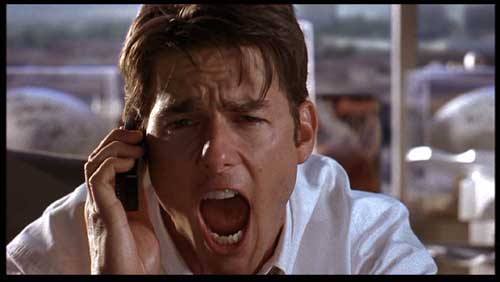by Andre Luck – September 2015
As an Inside Sales Manager I am often asked what the best salespeople do to be the best. Fortunately, I’ve had the opportunity to manage or mentor over 100 salespeople so far in my career. I have seen many times what the top performing salespeople have done to separate themselves from their peers. What makes these salespeople great?
Attitude
One of the most important characteristics of a successful salesperson is the attitude you bring to the office every single day. Although, being positive and having a smile on your face is important, bringing the right attitude to the office is more than just that. As a salesperson it means fully embracing your role as a salesperson that is tasked with generating revenue for your organization. It means having a confidence and assertiveness that will help you close sales and overcome tough objections from customers. And most importantly it means being in total control of how you react to all situations. One of my favorite quotes that I share with every one of my new hires is from Charles Swindoll that says “Life is 10% what happens to you and 90% how you react to it.” I tell my salespeople that no one else is in control of your attitude but you.
Work Ethic
When I was a sales rep I took great pride in my work ethic. I look to hire salespeople with a strong work ethic as well. Sales is a numbers game. More times than not, the people who put in the most work are at or near the top of the sales board. Come early, stay late, make five more phone calls, set one more face to face appointment, do whatever is needed to put yourself in the best situation to succeed. Hard work is not the only recipe to success, but long term success is impossible without it.
Consistency
It seems simple: Be consistent. Do the little things right every single day. But, it’s tough to do. Consistency requires great discipline. It’s easy to fall into bad habits.

Travis Baker, Inside Sales Manager for the Arizona Diamondbacks says, “There isn’t much that separates the good reps from the great reps on our staff. Because of our hiring process everyone is talented and everyone works hard. So it comes down to day in and day out consistency, as well as a refusal to lose.”
Make a conscious effort to stick to the fundamentals. Do the little things right every day that others do not have the discipline to do. It adds up after a full sales campaign. I always feel more confident in a salesperson’s long term success if s/he produces revenue consistently instead of making a big sale every now and again.
Discomfort
Some of the best advice I ever received: If you are not stepping out of your comfort zone, then you are not challenging yourself to grow.
For most new salespeople, it’s uncomfortable to strike up a conversation with a random stranger. It’s uncomfortable to ask someone you just met (and then tells you no multiple times) to spend thousands of dollars. But, you are tasked with doing this as a salesperson. The fear of the unknown is too much of a risk for some. They play it safe. They stick with comfortable. The best salespeople understand that if they do not take risks–do not get out of their comfort zones–then they will not reach their full potential.
Initiative
All sales reps typically have the same resources at their disposal. They receive the same training, same types of leads to call, and the same products to sell.
Success comes down to what you do with the opportunity. Look at inside sales as more than just another job. The best reps see it as the start to their careers. They are all-in. They give 100% commitment to whatever it takes to be the best. Losing is never an option. When things don’t go their way they don’t make excuses. The best reps proactively seek help from a boss, a mentor, or peers. Even when there’s little overall sales momentum, they find ways to create momentum for themselves and their sales team. During training with new hires I always share a quote from Will Rogers, “Even if you’re on the right track, you’ll get run over if you just sit there.”




 A commission plan must be consistent year to year and fairly simple to understand. We have made only minor adjustments over the last 12 years.
A commission plan must be consistent year to year and fairly simple to understand. We have made only minor adjustments over the last 12 years. ~
~ 